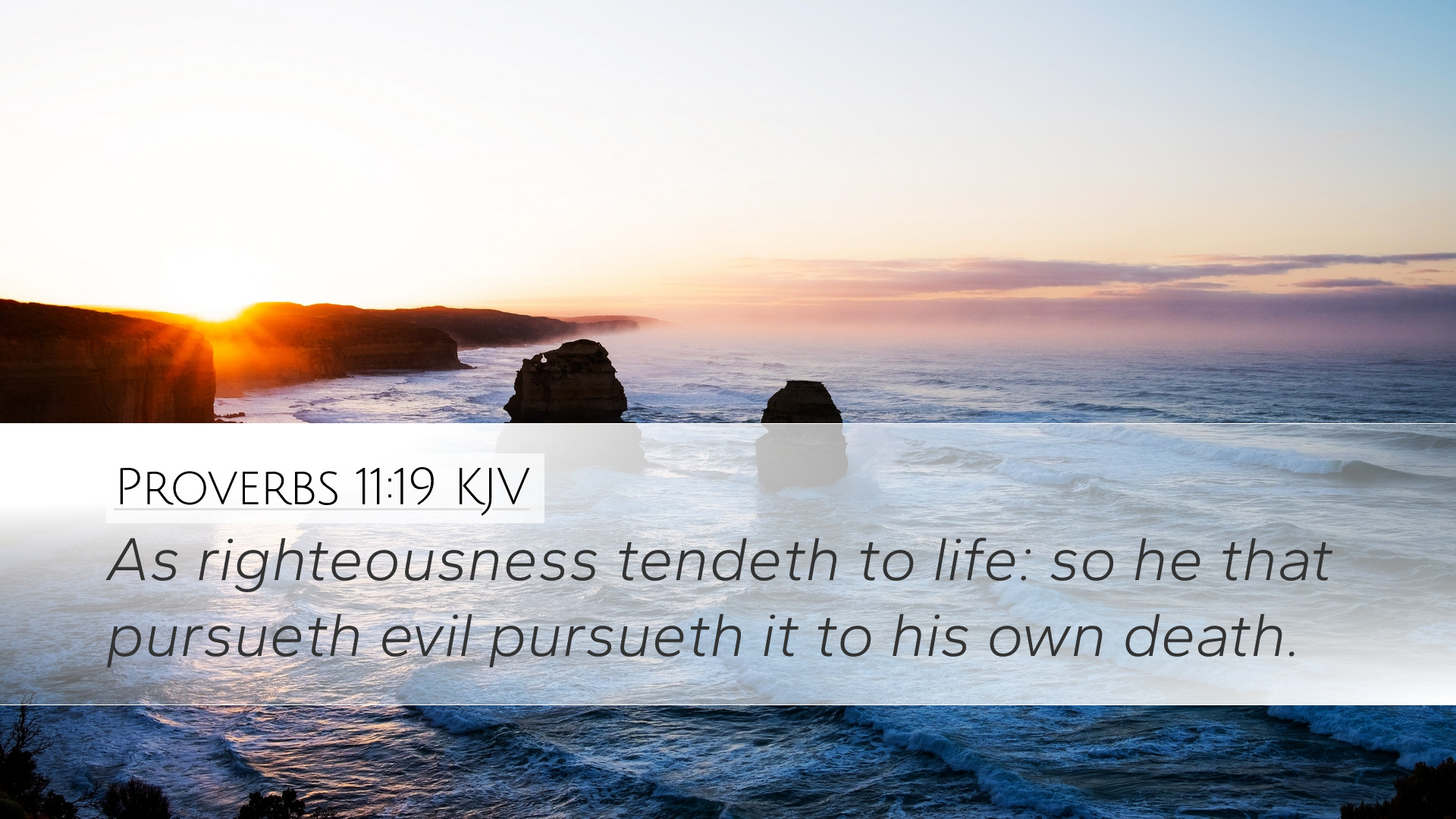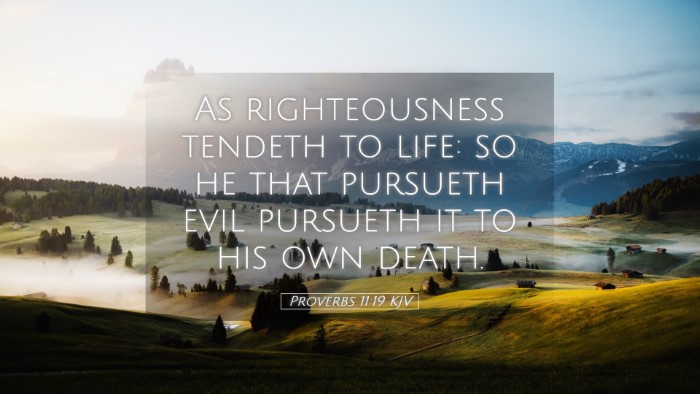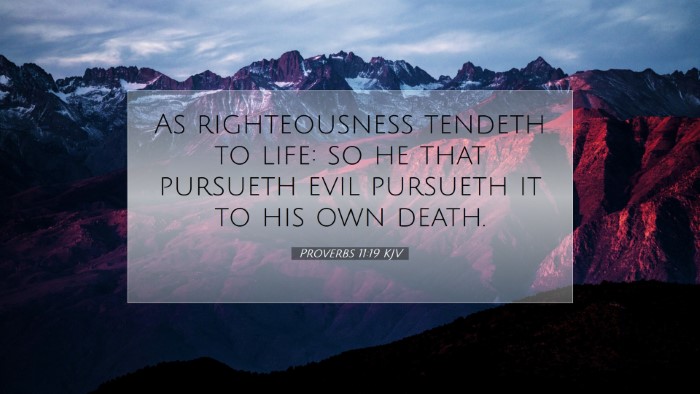Proverbs 11:19 Commentary
Bible Verse: "As righteousness leads to life, so he who pursues evil pursues it to his own death." (Proverbs 11:19, NKJV)
Introduction
The book of Proverbs is a treasury of wisdom literature, offering practical insights and moral teachings. In this particular verse, Proverbs 11:19, we find a profound contrast between righteousness and wickedness, highlighting the ultimate outcome of each path. This commentary seeks to draw from various esteemed public domain sources to provide a comprehensive understanding of this verse.
Insights from Matthew Henry
Matthew Henry emphasizes the duality of life paths—righteousness and wickedness. He mentions that righteousness is likened to a pathway that leads to life, both spiritually and temporally. In contrast, Henry points out that the pursuit of evil, while seemingly enticing, leads one to death.
- Righteousness: According to Henry, righteousness signifies living in accordance with God's will, which ultimately aligns with eternal life.
- Pursuit of Evil: Henry argues that individuals who seek after wickedness do so at the grave peril of their own existence, akin to walking into a trap designed for self-destruction.
- Life vs. Death: This juxtaposition serves as a moral imperative; those choosing righteousness are promised life, while those who embrace sin are warned of impending doom.
Insights from Albert Barnes
Albert Barnes elaborates on the theological implications of the verse, insisting that the pursuit of righteousness is not merely moral but involves a deep relational aspect with God. Barnes articulates the following points:
- Divine Favor: The pursuit of righteousness invites God's favor, resulting in both physical and spiritual blessings.
- Evil's Deception: Barnes warns of the deceptive nature of sin, which often masquerades as fulfilling or advantageous, drawing individuals toward their ruin.
- Consequences: This verse functions as a reminder that the choices made in life directly affect one's eternal destiny, accentuating accountability and the seriousness of one's decisions.
Insights from Adam Clarke
Adam Clarke offers a more pastoral approach to this verse, encouraging a deeper understanding of what it means to live righteously. Clarke's thoughts include:
- Practical Righteousness: For Clarke, righteousness extends beyond mere belief to encompass actions that reflect God’s character in everyday life.
- Accountability and Awareness: Clarke urges the reader to recognize the moral weight of their choices, emphasizing their profound implications not just for oneself, but for society as a whole.
- Humility: Clarke suggests that those who pursue righteousness must do so with a spirit of humility, understanding that they are reliant on God's grace to sustain their efforts.
Thematic Analysis
Proverbs 11:19 serves as a microcosm of the overarching themes in the book of Proverbs—wisdom, morality, and the fear of the Lord. This thematic richness can be dissected further:
- Choice and Consequence: This verse reinforces the principle that our choices lead to tangible consequences; living righteously yields life, while pursuing evil leads toward destruction.
- Moral Order: The verse upholds the idea that God has established a moral order to the universe, where righteousness is rewarded and evil is punished.
- Life and Death: In the biblical worldview, life and death encompass more than physical existence; they represent a relationship with God versus alienation from Him.
Applications for Today
In studying Proverbs 11:19, several applications can be drawn for contemporary readers—pastors, students, theologians, and scholars alike:
- Preaching and Teaching: When sharing this scripture, emphasize the importance of choice and character formation in the lives of believers, illustrating how daily decisions reflect one’s commitment to God.
- Personal Reflection: Individuals are encouraged to assess their life direction—are they truly pursuing righteousness, or are there elements of evil they are tolerating?
- Community Impact: The church is called to be a beacon of righteousness within society. By living out the principles of this verse, believers can positively influence their communities, promoting life and discouraging the paths that lead to destruction.
Conclusion
Proverbs 11:19 encapsulates the essence of the moral dilemma faced by humanity. It presents righteousness as the pathway that leads to life—a perennial reminder of the transformational power of living in accordance with God’s will. Through the insights of Matthew Henry, Albert Barnes, and Adam Clarke, this commentary has illuminated the verse’s depth and relevance for believers today. Ultimately, the call is not merely to intellectual understanding but to transformative action, as individuals and communities embrace the call to pursue righteousness, thereby reflecting the life-giving nature of God Himself.


